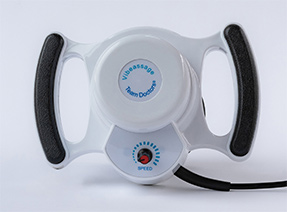When sleeping, it is necessary to maintain an equilibrium posture in the neck to avoid a sustained contraction, leading to compression of your joints. Equilibrium posture during sleeping is when there is an equal amount of tension of all neck muscles. Pillows are intended to support the head and neck in a neutral position to […]
Leaning Back Can Lock Your Neck Many of us lean to one side when we sit on the couch, at the desk, in the car, and even in the bed. Here is the most important rule you must follow to reverse your thoracic outlet syndrome. When sitting anywhere (car, couch, bed), you cannot allow your […]
If you have headaches, neck pain, upper back pain, or shoulder pain, you might have thoracic outlet syndrome. Some people who haven’t been to a doctor for a proper diagnosis call it by the slang terms of office syndrome, cell phone syndrome, or smartphone syndrome. After thoracic outlet syndrome has taken over their lives, they […]
Chronic neck muscle fatigue leads to individuals holding their heads up with their hands from the chin. Patients that do this regularly are usually lacking sufficient resting tone to hold their 9-12-pound head up. Holding your head up by placing the hands under the jaw and leaning to the side can stretch supportive ligaments of […]
Occupational Injuries—Statistics Muscular injury can occur when soft tissues are exposed to single or recurrent episodes of biomechanical overloading (11), which is characteristic of chronic musculoskeletal pain and thoracic outlet syndrome at work. Direct US workers’ compensation costs total $51.1 billion, averaging more than one billion dollars per week (12). Soreness and pain accounted for […]
When you lean your body to the left the righting reflex contracts the scalene muscles on the right automatically to hold your 9-12 pound head in this position. If the weight is leaning to one side you use your 9-12 pound head to counterbalance the weight leaning to the opposite side. If you sit in […]


























